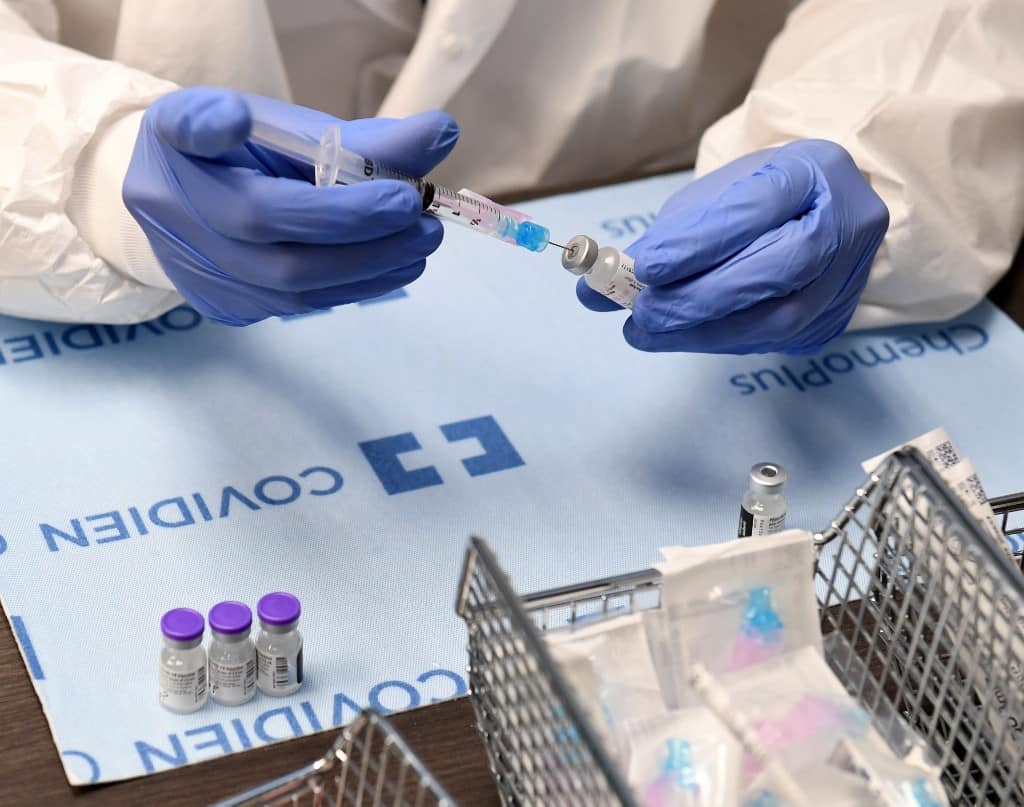PAHO, the American office of the World Health Organization (WHO), said that the region is still “under the clutches” of Covid-19 and asked countries with additional doses of vaccines to donate them, highlighting the impact of the Indian crisis.
“Our region is still in the grip of this pandemic,” said Carissa Etienne, director of the Pan American Health Organization (PAHO).
“Not only is it not over, it is accelerating,” she added, noting that in several Latin American countries, the first four months of the year were worse than 2020.
Faced with the rise in infections, particularly in Colombia, Peru, Bolivia, Argentina and Uruguay but also in Canada, Costa Rica and Guatemala, Etienne commended regional leaders for “prioritizing health” and making “never-easy decisions” to limit the spread of the virus.
“We will only overcome this pandemic with a combination of prompt and equitable access to vaccines and effective preventive measures,” she said, reiterating the problem of low supplies of Covid immunizations and the “urgent need” for more doses.
“That is why we urge countries with additional doses to consider donating a significant portion to the Americas, where these life-saving doses are desperately needed,” Etienne said.
The PAHO director praised the United States and Spain, which announced recently that they will send millions of leftover doses of the Covid vaccine to other countries.
“We see these commitments as very important steps in the right direction, and a trend that we hope will be followed by other countries that can,” she said.
The Spanish government said that at least 7.5 million doses of coronavirus vaccines will be sent to Latin America and the Caribbean during 2021, as Spain reaches 50% of its population vaccinated.
The donation will be channeled through Covax, the mechanism promoted by WHO for equitable access to vaccines. Distribution will operate under “a strategy focused on equity, with special consideration for those countries that have had limited access to vaccines,” Etienne said.
The impact of India
PAHO highlighted its concern about the new coronavirus wave in India.
“It is quite an important impact,” said PAHO Deputy Director Jarbas Barbosa.
India, with 1.3 billion people, is currently the main focus of the Covid-19 pandemic, which has killed more than three million people worldwide since the virus was first reported in China in late 2019.
Before this strong rebound in cases and deaths, India, the world’s leading vaccine producer, exported through Covax tens of millions of doses from the Anglo-Swedish laboratory AstraZeneca manufactured in the country by the Serum Institute.
But with the growing health emergency, New Delhi froze vaccine exports, including Covax, to prioritize domestic supply.
WHO and the Gavi Vaccine Alliance reported that this left Covax short 90 million doses destined for 60 low-income countries in March and April.
“We have three countries in the region that receive AstraZeneca vaccines from India, which are Bolivia, Haiti and Nicaragua,” Barbosa said.
But “all other countries may also suffer a significant reduction because AstraZeneca vaccines from other producers are going to be shared by all,” Barbosa explained.
Covax, co-chaired by the WHO, Gavi and the Cepi Coalition for Epidemic Preparedness, is a global alliance of public and private actors launched in June 2020 for the equitable procurement and distribution of Covid-19 vaccines.
The goal is to provide vaccines for at least 20% of the population of each participating country.
In Latin America and the Caribbean, 31 countries have already received more than 6.8 million doses through Covax. The vast majority are from AstraZeneca manufactured by the SK Bioscience laboratory in South Korea.






